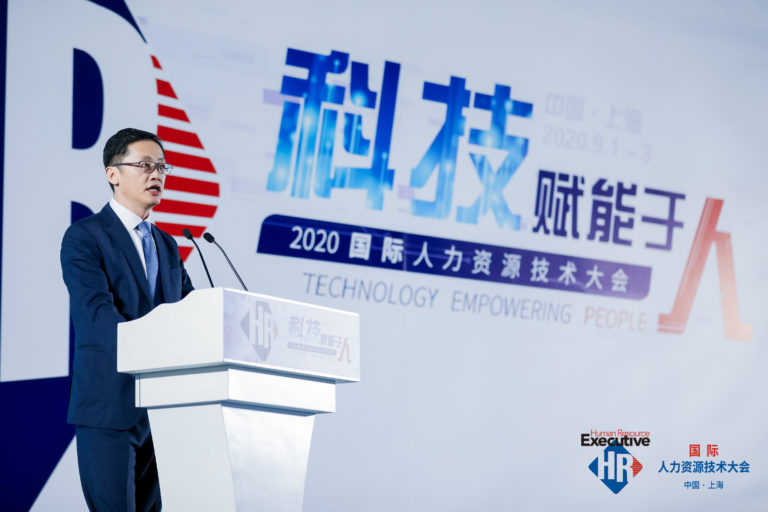The dramatic shift in priorities facing the global HR community this year—a worldwide health crisis that has upended the traditional world of work, along with fervent calls for action on diversity and inclusion—took center stage at the 2020 Human Resources Technology China Conference. Current events were undeniable, as the conference—originally scheduled for May—was held in September in Shanghai, with some of the presentations delivered virtually.
Dozens of speakers from around the globe explored the HR areas that have undergone the most change in 2020 and those that will continue to evolve in the coming months and years, regardless of geographic location: employee engagement, the war for skills, emerging technologies and bias in the workplace, among them.
Perry Timms, founder and chief energy officer of People & Transformational HR, noted how the rapid changes brought by global events like COVID-19 highlight the need for agile business practices in HR. HR leaders need to become more “responsive people professionals,” Timms said. “HR professionals need to move from administrators and an enabling function to being the power source behind successful organizations who can last.”
Agile project development, Timms noted, can be part of a solution to one of the most pressing issues facing HR today: burnout. This type of overwork is countered by employees feeling fulfilled, which research has shown can be achieved through flexibility in schedules, having a say in projects, the freedom to be creative, flexibility in where work is done, latitude for innovation and the ability for the employee to prioritize the workload—all of which are central to agile models.
Related: HR Tech Conference is going virtual
The shift to virtual has also been a defining feature of the pandemic’s impact on HR. Even before the health crisis, digital recruiting was on the rise, said Joy Koh, head of consulting at Alexander Mann Solutions, noting that half of job candidates surveyed apply on their mobile devices, and more than half will abandon the process if it’s not simple and straightforward.
With the disruption of the coronavirus pandemic, more organizations have turned to virtual job fairs, video interviews and AI assessments, noted Kensy Sy, general manager of Alexander Mann Solutions in China. About 80% of Chinese companies surveyed plan to move their recruitment activities online this year, he added.
When creating “contact-free talent acquisition” processes, Sy said, employees should consider factors such as the candidate experience, diversity and inclusion, data-driven insights and cost-efficiency.
“We always must strike a balance and include human touchpoints in any of our virtual processes,” Koh added. “Make sure the design behind the digital process is robust and continue to monitor and adjust.”
Adjusting to the HR implications of the pandemic was a primary theme of industry analyst Josh Bersin’s presentation on “Untangling the HR Tech Market in 2021.” Bersin highlighted the organizational need for agility and resiliency to weather the constant change that the health crisis will continue to produce.
“And I mean lower-case ‘a’,” he said. “Not only are we doing things in an agile way but we’re operating in a much more resilient model. If you look at most HR departments in the world at the moment, they’re highly distributed, highly empowered and people are getting more education and training than ever before.”
Because of that, HR technology needs to be easy to use, easy to deploy and provide data right out of the box, Bersin said. Traditionally, HR tech buyers selected solutions based on finding the right product; going forward, they should be looking at finding the right platform, Bersin said—one that prioritizes flexibility, ease of use, vendor trust, system fit and configurability.

Li Dong, vice president of event organizer Donghao Lansheng Group.
“We’re not exactly sure what’s going to happen [with the pandemic in 2021], but we can be assured that technology is going to play a very, very large role,” Bersin said.
Li Dong, vice president of event organizer Donghao Lansheng Group, echoed that sentiment in comments on behalf of DLG.
“The human resource service industry has entered a critical period of digital transformation and platform upgrading,” Li told the crowd. “Driven by science and technology, the scale, specialization, and internationalization of the human resources industry continue to increase and the concentration and influence continue to strengthen … Looking ahead, the development of the human resources industry will increasingly rely on technology, and the cross-border integration of modern service industry and high-tech industry is unstoppable.”
*
This year’s HR Technology Conference & Exposition® is going virtual and free for all. It will take place from Oct. 27-30. For more information and to register, click here.